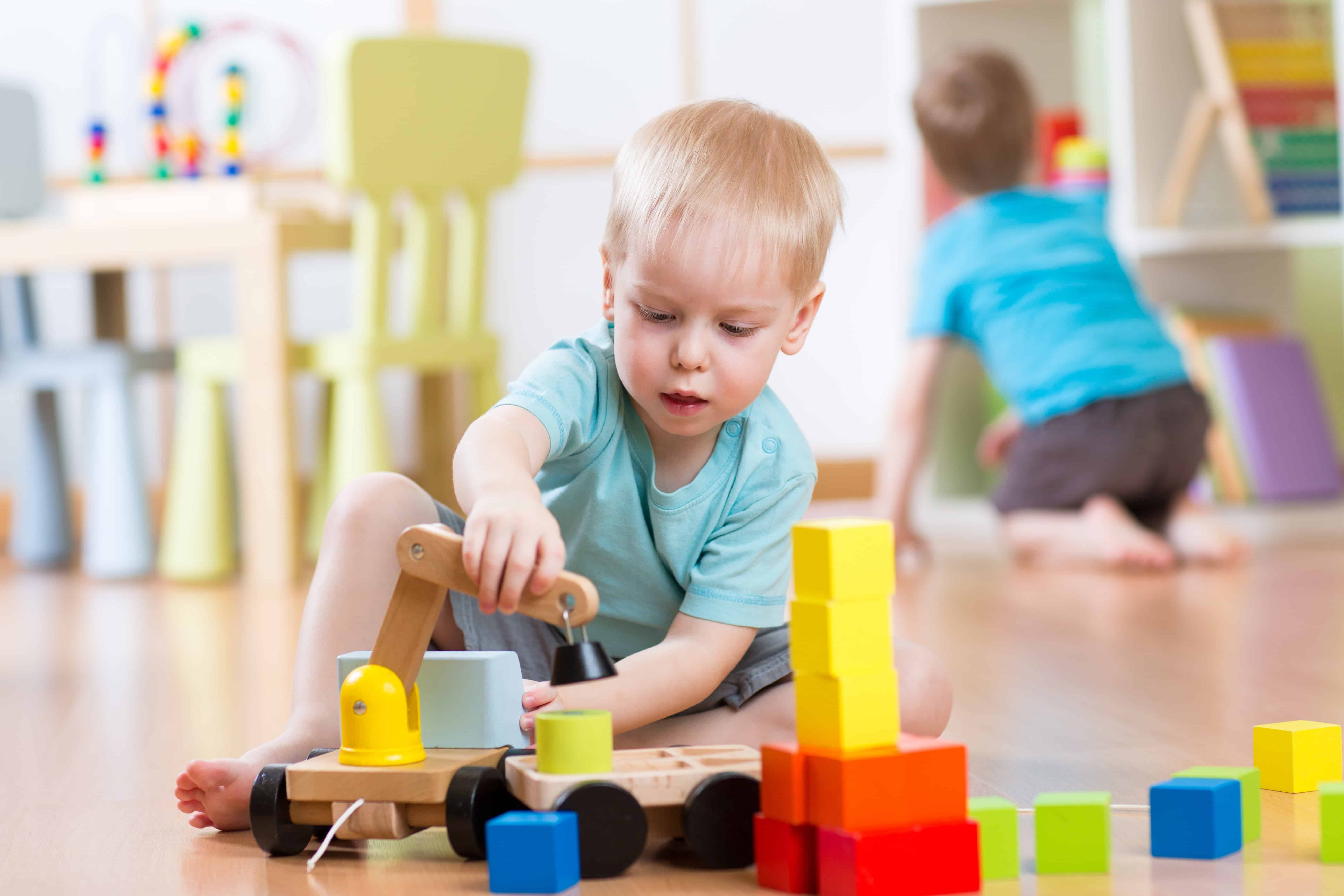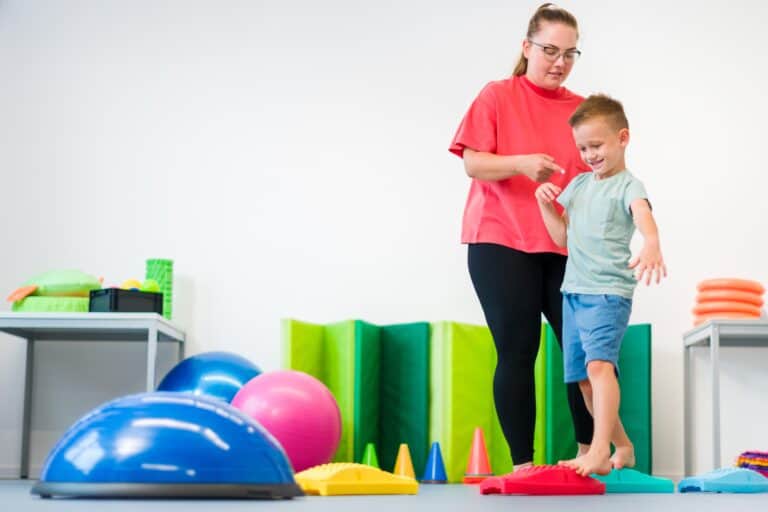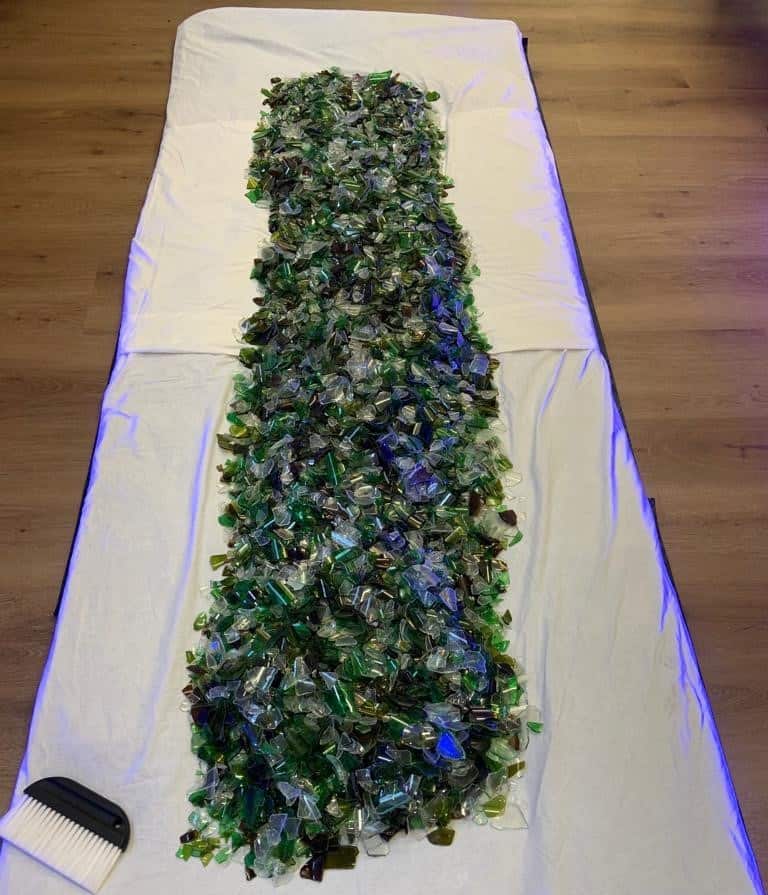
Acquired Brain Injury and Traumatic Brain Injury, is the impact different for children?
I am an Associate Solicitor with Bolt Burdon Kemp in the Child Brain Injury team.
For many years I have acted for individuals who have had been affected by a brain injury, ranging from a minor head injury to a significant injury leading to life changing injuries, in particular to a child and their family. The causes are many: following an apparently minor trip and fall, a road accident or as a result of a birth injury.
In this blog I will discuss what is meant by an Acquired Brain Injury. I can’t go into every type of injury in detail as there are many types and causes but it will give an idea of how this injury can happen, the symptoms that may arise and how it can impact on the person or child affected.
Head injuries are not uncommon, and the consequences can be far reaching. There is a myth that the common “whiplash” injury is of less severity. It may cause pain and suffering for a few weeks or months yet I acted for a lady, who was fit and well, but when she was driving through traffic lights and another driver decided to ignore his red signal completely, resulting in a collision and a “whiplash injury” caused a clot to travel to her brain. She had a stroke which changed her life completely.
What does the term “Acquired Brain Injury” mean?
Acquired Brain Injury (ABI) refers to any type of damage to the brain that occurs after birth. This can include traumatic brain injuries (TBI’s), for example, caused by road accidents or falls or a ‘non-traumatic’ brain injury which did not occur as a result of an external impact/injury to the head but has been caused by something else, maybe a stroke, or an infection.
ABI can lead to a wide range of physical, cognitive, and emotional symptoms, depending on the severity of the injury and the area of the brain affected. This can be treated through a combination of rehabilitation and support services which are essential for a good recovery.
How well someone recovers from a brain injury is dependent on many factors: the severity of the injury, the area of the brain which has been injured as well as age, overall health, and the support they have from family or friends. For children as their brain develops the effects of the injury may not be noticed straight away which is why their rehabilitation can be slow to progress as their brain adjusts. The brain is amazing and does adjust but depending on the area the injury has affected it is unlikely to return to how it would have been had it not been injured.
What is meant by Traumatic Brain Injury (TBI)
I have referred to traumatic brain injury or TBI. This is normally defined as an alteration in brain function that is caused due to an external force. The damage to the brain from a TBI can be focal (confined to one area of the brain) or diffuse (happens in more than one area of the brain), ranging from mild (concussion) to severe (coma or vegetative state).
Typical symptoms of a mild TBI may include:
- Headaches
- Confusion
- Difficulties with memory and concentration
- Dizziness
- Blurred vision
I suspect we have all at some time gone to A&E, or gone with someone, after a fall perhaps. I know I have growing up! You have been given the “all clear” but leave clutching a leaflet with what to look out for and to return if things change. The list will include the typical symptoms as I have listed above.
If the TBI is more severe, symptoms may include:
- Loss of consciousness
- Seizures
- Permanent difficulty with movement
- Impaired speech
The effects of a TBI can be short-term or long term and can include physical, cognitive, and emotional issues. Some physical symptoms can include weakness, numbness, difficulty with coordination and balance, headaches, a change of loss of taste and smell or sensitivity to light and sound.
Cognitive effects can include post-traumatic amnesia immediately following injury, difficulty with memory, attention, concentration, problem-solving, slowed mental processing, impaired decision-making and word finding difficulties. There may also be concerns over reduced insight and mental capacity.
Memory is often affected. Over the years when reading many expert reports for clients who have been affected by a head injury, the time between the initial injury and the first continuous memory has been used as an indication of the severity of the injury (referred to as “post traumatic amnesia”), but this isn’t conclusive. I was listening to a neurological expert recently who spoke about a lady who had an incredibly accurate memory of the first 30 minutes after her accident but she remembered nothing more until after 24 hours. From the scans there was no doubt she has a significant head injury but her ability to remember the events after she was injured, albeit for a short time, didn’t fit in with the “norm”.
Emotional effects of a TBI can include depression, anxiety, irritability, anger outbursts. It can also affect motivation. Fatigue is often a significant issue which can impact on the success of any rehabilitation. Sometimes a brain injury will manifest in aggravated minor traits which become a problem, for example drinking becomes an alcohol addiction or enjoying video games becomes an addiction to the extent that it has significant impacts on the daily routine and the ability to get on with life. Often a person doesn’t have insight into how the injury is affecting them. “I am OK” yet the way they have changed is far from how they were before the accident. This lack of insight can make rehabilitation, particularly with teenagers moving into adulthood, very challenging.
What are the different types of TBI?
As I have said traumatic Brain Injury (TBI) is wide ranging and may include injuries such as:
- A mild form of TBI caused by a blow to the head. Symptoms can include headache, confusion, dizziness. These symptoms may not present straight away but with rest generally a recovery is made within a few weeks. This isn’t always the case. Over the years I have acted for people who haven’t recovered as well as expected. The diagnosis has been “post concussion syndrome” and the effects have been as serious to them as a more significant TBI.
- A contusion is a type of TBI which is a potentially serious injury as it causes bleeding and swelling in the brain. This usually results from a large impact to the head. A contusion is different from a concussion, in that concussions are wider-reaching injuries and contusions are more localised in a specific area. Contusions are more serious than concussions because they involve damage to brain structure and pose more severe risks. Treatment of contusions depends on the extent of the injury. If bleeding and swelling in the brain are minor, treatment is conservative but if there are signs of increased intracranial pressure (ICP), pressure inside the skull, surgery may be needed to reduce this. Symptoms of increased ICP can include headaches, blurred vision, sleepiness, weakness, and vomiting. Hence the head injury leaflet if the symptoms are not immediately apparent.
- Diffuse Axonal Injury (DAI). This is a form of TBI which happens when the brain rapidly shifts inside the skull as an injury is occurring. The long connecting fibres in the brain called axons are sheared as the brain rapidly accelerates and decelerates inside the hard bone of the skull. DAI typically causes injury to many parts of the brain, and people who suffer a DAI are usually left in a coma. The changes in the brain are often very tiny and can be difficult to detect using CT or MRI scans. It is one of the most common types of traumatic brain injury and also one of the most devastating. For example as a result of a serious car accident when the impact causes the brain to move forcefully within the skull.
- Penetrating Injury. As its name suggests it is caused by an object which pierces the skull and enters the brain. This type of injury can be significant and also fatal. Having said that I have seen x-rays showing the object that has pierced the skull but amazingly the person is still alive.
- Coup-Contrecoup Injury. A coup-contrecoup injury occurs when the brain is slammed against the skull in two different locations. Again this type of injury can occur in car accidents when the brain is first jolted forward and then slammed back against the skull. Symptoms can include headache, confusion, and difficulty speaking or communicating.
What are the different types of Acquired Brain Injury (ABI)?
ABI is a brain injury that occurs due to injuries to the brain. ABI includes TBI as outlined above but it also includes other conditions that affect the brain, for example:
- Stroke
- Infectious brain diseases (such as encephalitis or meningitis)
- Brain tumours
- Near drowning when the brain is temporarily starved of oxygen
- Hypoxic or anoxic injury
- Alcohol and drug abuse.
The signs and symptoms of ABI are epilepsy, impaired vision, touch, and smell, impaired physical abilities such as weakness, tremor, or spasticity, impaired ability to think and learn such as forgetfulness, poor attention, short-tempered, lethargy, depression, and impaired communication abilities like slow or slurred speech and difficulty following a conversation.
So, what are the similarities between Acquired Brain Injury and Traumatic Brain Injury?
- ABI and TBI are interconnected to each other, TBI is a type of ABI
- Both brain injuries are non-hereditary
- Both can be caused by external forces.
- They have similar symptoms, such as sensory problems, sensitivities, depression, anxiety, etc.
- Both brain injuries can be diagnosed through physical signs and brain scans.
- They can be treated through medicines and rehabilitation.
Many individuals including children and their families are affected by acquired brain injury every year, the ‘acquired’ part simply meaning that the child wasn’t born with their injury – it is the result of an accident or illness that has happened later.
What is meant by Hypoxic/Anoxic brain injury?
Hypoxic/anoxic brain injury occurs when the brain is deprived of oxygen. This can happen as a result of drowning, suffocation, or cardiac arrest. Oxygen is needed for the brain to make use of glucose, its major energy source. So if the oxygen supply is interrupted, consciousness will be lost within 15 seconds and damage to the brain begins to occur after about four minutes without oxygen.
A complete interruption of the supply of oxygen to the brain is referred to as cerebral anoxia. If there is still a partial supply of oxygen, but at a level which is inadequate to maintain normal brain function, this is known as cerebral hypoxia. In practice, these two terms tend to be used interchangeably.
This is a common cause of cerebral palsy, due to impingements on the umbilical cord, delays to delivery during, or other complications during birth.
As I have said glucose is a major energy source and oxygen is needed to make it. I acted for child who were born in good condition after a very difficult birth by caesarean section. It is critical to ensure a baby is feeding soon after birth to ensure glucose is being produced. This is why a midwife should check to make sure the baby is taking its milk down. In this case the mother’s first language was not English. She was a lovely lady, always smiling which I think was misinterpreted by the midwives as “I’m okay”.
When she was discharged home her baby was crying, he wasn’t feeding, she was on her own as her husband was at work. When her baby did eventually stop crying she thought he was exhausted and was finally sleeping but he was actually in a hypoglycaemic state as discovered when the nurse called at the home for a check-up the next day. The consequences of those few days were devastating for the child and his family, he was diagnosed with severe cerebral palsy. He was epileptic and what should have been a long and healthy life for a healthy baby was reduced to only 3 decades.
Are children and adults affected differently?
The human brain develops as we grow. The male brain matures at around 25 years and around 21 years for the female brain.
If part of the brain is injured in a child’s early years, that child might not develop some of the skills they may have otherwise had. The brain has “unfinished business”. Having said that with effective rehabilitation the brain can adjust even if the effects of the injury cannot be reversed.
For example a child may have poor cortical vision due to the signals that the brain is sending, not because the eyes are damaged. The vision can improve by using bright lights and other techniques. Occupational therapy plays an important part in rehabilitation in this respect.
Some of the effects of ABI may not come to the surface until the injured part of the brain starts to be used. For example an injury to the frontal lobe (the area above our eyebrows and behind our forehead which is the part of the brain responsible for decision-making, judgment and problem-solving) at a young age might not become clear until the child is around 12, when they start to use these skills more. There is no right age to start rehabilitation for a child with an ABI but in my experience the sooner the better with adjustments along the way as the brain develops and the new skills are learned. In my practice I often see the family suffer more as they notice the differences between their child and other children as they grow. Rehabilitation is essential for the child with the brain injury but also for the family as they come to terms with the impact that injury has and will have on their child.
The difficulties children have might seem to contradict what common sense may suggest – will a young brain be able to ‘bounce back’ to full strength? A child falls and they pick themselves up again but the brain is complex and the child needs support. Children may appear to make a full physical recovery, but the effects of a brain injury may take weeks, months and in my practice as a Child Brain Injury lawyer often years to come to the surface.
A child with an ABI may have difficulties with fatigue, with learning to multitask, with concentration, with speech, with cognition, or with empathy. Depending on the severity of the ABI that child may never develop skills to enable them to work or to manage their own financial affairs. Again this is devastating for a family who must come to terms with the fact that their child will be totally dependent on them not just to 18 years but for the rest of their life.
The brain is the most sophisticated part of our bodies so any injury to it can be equally complex. There is no single ‘cure’ or treatment for ABI, and as I have said some children will never fully return to the way they were before their injury. Progress may not always be rapid and parents can face an extremely hard time coming to terms with the effects of the injury if the speed of progress slows down over time. Or indeed accepting that the overall effects of the injury are going to be permanent.
But there are opportunities for children to get back some of the skills they’ve lost, through different therapies and support. I have already mentioned occupational therapy or OT. In this regard the treatment for ABI and TBI is similar: physiotherapy, speech and language therapy, psychology, occupational therapy, music therapy and many other approaches will have a part to play in the child’s “rehabilitation’. The extent of rehabilitation will vary according to the individual’s needs but it is essential, whether for an adult with a TBI or a child as they grow and adapt to the extent of their injury.
As I see in my practice as a Brain Injury lawyer, injuries can be caused through someone else’s fault, for example in the all too common road traffic accident, whether driver or pedestrian as a child crosses the road or as a result of an injury due to a delay in childbirth where the brain has been deprived of oxygen. They are often complex injuries and raise a range of issues for individuals and their families, especially when compared to other forms of injury.
When seeking legal advice it is therefore important to seek out a solicitor with experience in brain injury claims. A specialist solicitor will know the right expert/s to instruct in your claim to ensure you or your loved one gets the compensation they need and will seek to obtain extensive support via a multidisciplinary treatment team to provide the much-needed rehabilitation. It is also important to know when to settle a claim, too early with a brain injury might result in a significant undervalue if the full effects of the injury are not yet known. Each case has to be monitored carefully, few cases involving an ABI are the same with regard to impact although rehabilitation needs may be similar.
I have known parents who have wanted to wait until things improve but that isn’t necessary when considering when to investigate a claim if there is a question over the treatment received for example when the baby was delivered. I can investigate who is to blame at an early time, when records are available and memories fresh. Once liability is resolved I can ask for interim payments to fund the essential rehabilitation until such time as I am able to settle the claim, and perhaps bring closure for the family, but most importantly I can ensure that in the future they have the funds to pay for the care and support their child will need in their lifetime.
Of course, it is not always the case that an ABI was caused by someone else’s fault. In cases where legal redress cannot be sought there are fortunately a number of excellent charities who can offer advice and guidance if you are unable to claim compensation including, but not limited to:










